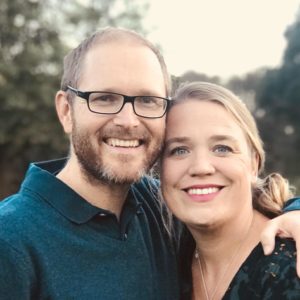“This is my beloved Son, with whom I am well pleased; listen to him.”
Matthew 17:5b
When my husband and I were ordained as IPHC career missionaries, we were 26 years old. Some people jokingly said that we were “too young” to be missionaries. We came to Holland not with a big team nor a big budget, but just two young people who loved the Lord and wanted to reach the people of Europe.
We are so thankful for our leaders who, even though we were young, saw the calling that was on our lives and supported us. It is true, we were young, but there are so many advantages that we had because we were young! We were very flexible. Matthew learned a new language, and we were not afraid to try new things. If they did not work out, then we just changed what we did. We thought that we would attract a lot of young people with small children to our church plant, but we were surprised to discover that even many elderly felt right at home at our church.
During the first years on the mission field, we had some stressful moments in dealing with immigration and the Dutch IRS. We would call our leaders from WMM, and they would listen to us, pray with us and, most importantly, assure us that things would be okay. They would tell us, “God will take care of you.” Matthew’s dad tells him explicitly every week on the phone, “Son, I am so proud of you. I love you.” There is such a lesson that we can learn from this: when we release young people to walk in their calling, they need older people to cheer them on and pray for them. They need someone who can point them to God’s promises when times are hard.
We are both 40 now, and we have four children between the ages of six and 14. Our first and foremost disciples are our children. Our kids are second-generation missionary kids, and they are living out what it means to be a missionary. They go to very multicultural schools, speak different languages, and live in a neighborhood with over 50% Muslim immigrants. They also go to a church made up of people who work (or have worked) in Amsterdam’s Red Light District.
God has not called us to raise our family safe and sheltered. God has called us to raise up disciples in our home who will be the salt and light in the world. Doing this requires our home to be a safe place where they can be honest, real, and vulnerable. It requires us to be intentional about spending one on one time with them, listening to them, and giving them the confidence that they can walk in their calling.
We strongly believe that we can empower our (spiritual) children by letting them take part in ministry with us. Matt often asks a younger person to travel with him or go to the street to do evangelism. Often, we take our own children on ministry trips with us. In a safe environment, they learn to do everything we do.
In our church, we always say, “We would rather create space for people to grow and make mistakes, than that everything has to be 100% perfect all the time.” We have others preach and grow in their gifting. We have my daughter sing on the worship team and will ask our son, Levi, to pray for a sick person. At home in our devotional time, we ask our children to ask God for a picture or scripture to encourage another family member. This way they learn to hear God’s voice and prophesy in a safe environment where they can make mistakes. If we are not intentional in creating space for young people or young believers to grow in their gifting, we will not raise up a new generation that operates in the five-fold ministry.
Let us all remember as we value all generations: we need the energy and excitement of young people in the body of Christ, but we cannot expect our ‘children’ or young people to do the great things for Christ if they are spiritual orphans.
Young people or believers need spiritual fathers and mothers (that can be a pastor, youth pastor, an evangelist, a prophet, an apostle, or teacher) who get on the phone regularly and ask the young person, “How are you really doing?’ “How can I pray for you?” “How can I serve you?” We need to be intentional about being fathers and mothers who model ministry to our spiritual children. Spiritual parents should allow their children to make mistakes and give them space to grow.
We need to be a movement where there are meaningful relationships between the different generations. Young people should be inviting older people into their lives to be a source of wisdom, such as an accountability partner or a prayer partner. However, we also need older generations to commit to being the biggest cheerleaders in a young person’s life. Each of us flourishes when we hear someone say, “Son, daughter, I believe in you. I love you. I am so proud of you.”
By Femke Helland



